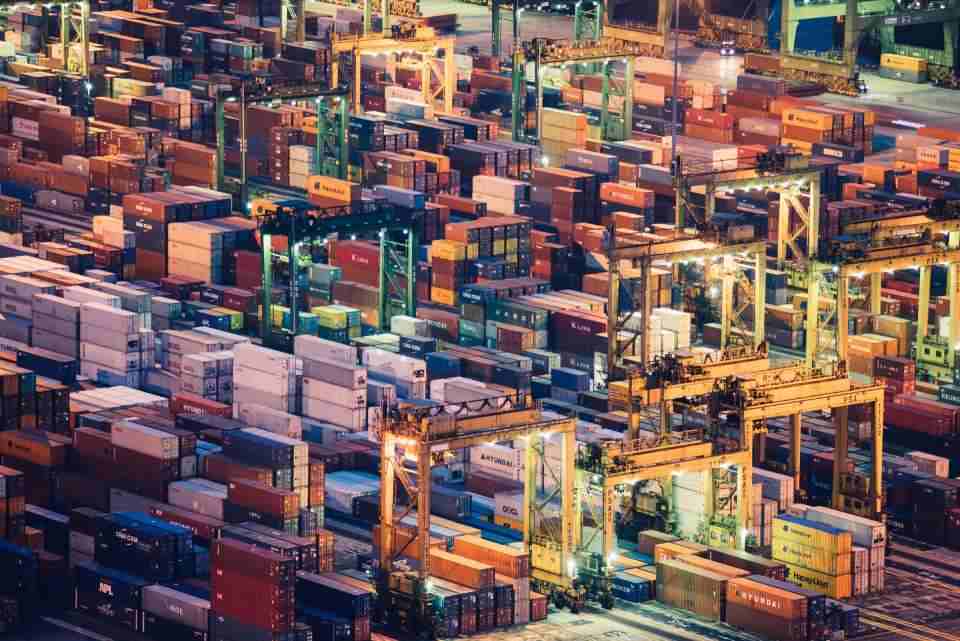
Cargo transportation complications are not just frustrating for business owners; they can be highly costly in terms of customer dissatisfaction, increased operational costs, inventory shortages, and several other problems. These issues can worsen ocean freight, as shipping vessels have long transit times and are vulnerable to delays. The rise in shipping costs and container shortages have made things even more challenging. However, working with an international freight forwarder can minimize disruptions to your business.
Understanding the Role of a Freight Forwarder
The role of a freight forwarder is to plan, arrange, and manage cargo transportation over the ocean. A forwarder can act on the exporter’s or importer’s behalf to move freight across international waters. The most common responsibilities include:
- Advising their clients on the most efficient mode of transportation based on their needs
- Route optimization to help minimize costs and transit time
- Booking a spot on the vessel for the shipment
- Booking trucking services to get cargo to and from the shipping vessel
- Preparing and submitting all required documentation for moving the cargo to the final destination (including the Bill of Lading, certificate of origin, commercial invoice, packing list, and customs forms)
- Clearing the cargo from outbound and inbound customs
- Helping track the shipment throughout transit
Why Hire a Sea Freight Forwarder?
The supply chain and logistics industries are the backbone of the global economy. However, these industries face serious challenges, including demand fluctuations, sustainability concerns, increasing regulatory compliance, and transportation bottlenecks. Fortunately, there is a way to minimize these challenges by hiring a freight forwarder. They can manage the entire shipping process. Here are some of the critical benefits of hiring one.
Advanced Networks
The best forwarding agents have well-established connections in their geographical areas of operation. Their network can include critical parties such as port officials, international agents, courier companies, and the local trucking company. This advanced network allows freight forwarders better accessibility and immediate solutions to shipping challenges, such as customs clearance or port congestion. The advanced network also plays a crucial role in keeping up to date with compliance requirements across significant ports.
Expertise in Shipping Documentation
International shipping requires documentation, and completing some of this paperwork can become complicated and tedious. Forwarding agents are experts in shipping documentation. They can guide their clients in preparing documents and avoiding potential pitfalls. Smaller companies or inexperienced businesses that handle their own export or import processes can make documentation errors, leading to penalties and delays. A typical delay is at the customs checkpoint. Forwarding agents can review and prepare documentation to mitigate any such problems.
Knowledge of Compliance Requirements
Navigating the regulatory landscape across different ports around the globe can be challenging. Each country has its own unique set of compliance requirements for import and export. Forwarding agents understand the nuances of compliance requirements, which helps minimize or eliminate unnecessary penalties and delays. In addition, freight agents can streamline clearance through customs by ensuring the shipment meets all paperwork and compliance requirements.
Route Optimization
Route optimization refers to planning shipment routes to maximize efficiency to help reduce costs and transit time. Freight agents can advise their clients on the best route to the destination country. There are technology tools that help with route optimization. Forwarding agents can also access weather routing services to minimize container ship transit through inclement weather. Some forwarders also have their warehouse to help with logistics.
Customer Service
A key but often overlooked advantage of hiring a cargo forwarder is that you get access to customer service for expert advice and shipment updates. They can also guide customers on the costs of services, so there are no surprise fees like customs charges. The enhanced visibility helps you plan for any upcoming hurdles for seamless shipment transit. The expert guidance provided by customer service helps clients decide on shipping options and can fix any issues due to missing or erroneous documentation. In addition, customer service can help communicate with different players, such as agents at destination ports, customs brokerage, trucking companies, and the local warehouse.
Basics of Air Freight vs. Ocean Freight
Air freight is a much faster mode of transportation of goods than ocean freight; however, it’s also more costly and is suitable mainly for lighter cargo. Ocean transportation is better for large shipments that weigh more or require more space.
With the advancement in technology used in ocean vessels, ocean carriers have become a more environmentally friendly mode of transportation with a lower carbon footprint than air freight. However, this depends on the specific shipping vessels, as some older models are still operational.
Another critical advantage of ocean transportation is fewer restrictions on items. For example, you can transport oversized cargo across the ocean but will find it highly challenging with cargo planes.
One of the challenges with ocean freight is that you’ll have to wait longer for your shipment to arrive. Also, ocean transportation is vulnerable to port congestion and customs clearance delays. Such processes are faster and more straightforward when freight is moved through the air.
Full Container Load (FCL)
FCL uses the whole container, regardless of whether or not the entire container space is used. Regarding cost-effectiveness and practicality, most shippers try to maximize container use. The benefit of full container loads is better security, as the container remains sealed until it reaches the destination. There is also less chance of damage to cargo due to reduced handling. FCL shipment is more expensive than LCL.
Less than Container Load (LCL)
With LCL shipment, cargo from multiple shippers is consolidated into one container. LCL shipment is less expensive as each shipper only pays for their share of space in the container. LCL shipment is ideal for smaller loads or cargo that is not sensitive to damage due to mishandling. An overlooked advantage of LCL shipment is that you can keep inventory flowing rather than wait to fill the container before shipping. This helps reduce the risk of stockouts.
If you want to learn about international ocean freight or cargo forwarding, please get in touch with us at Dedola Global Logistics.



